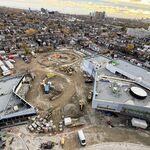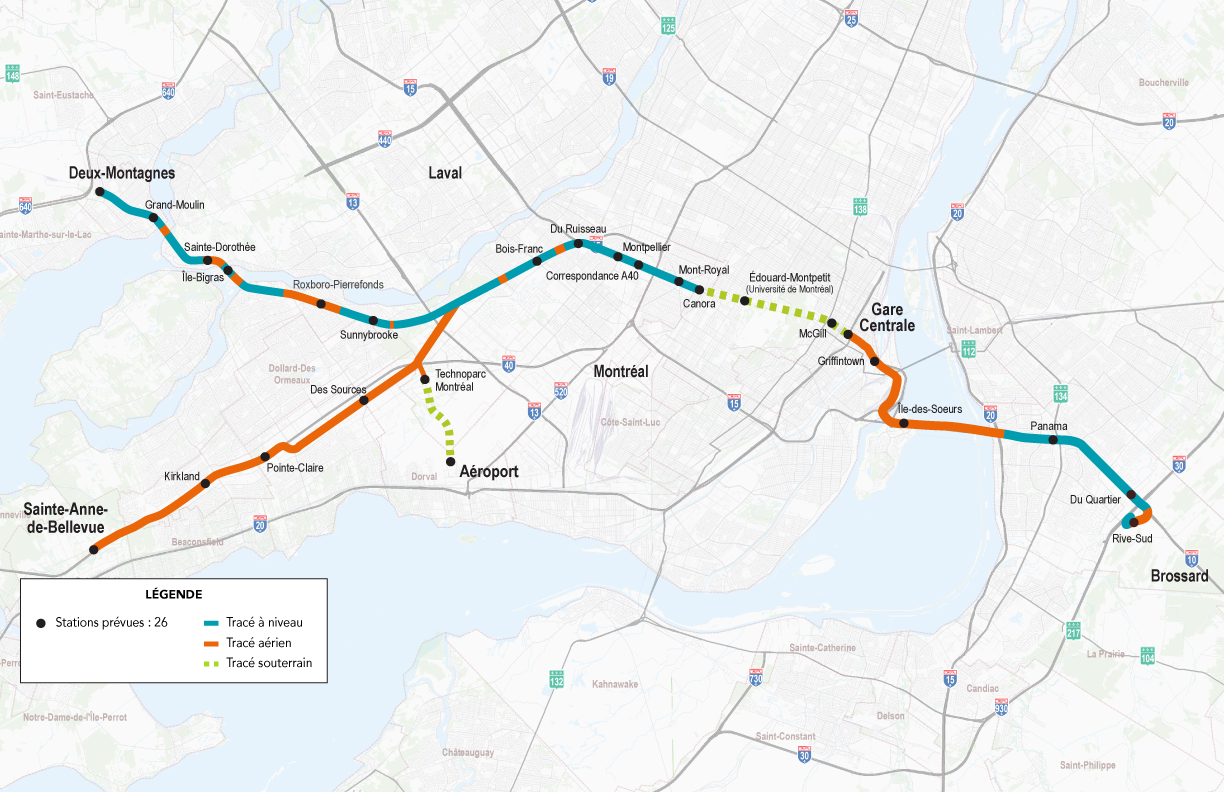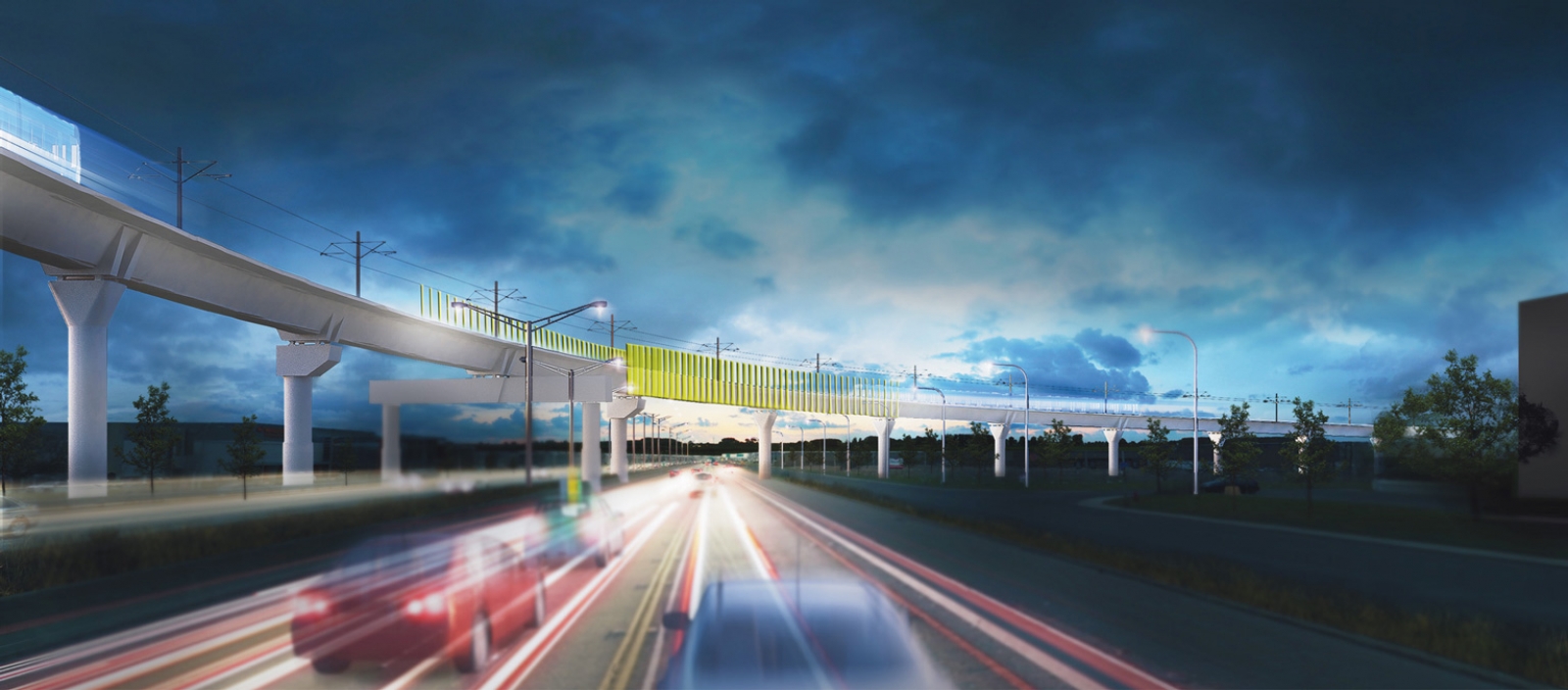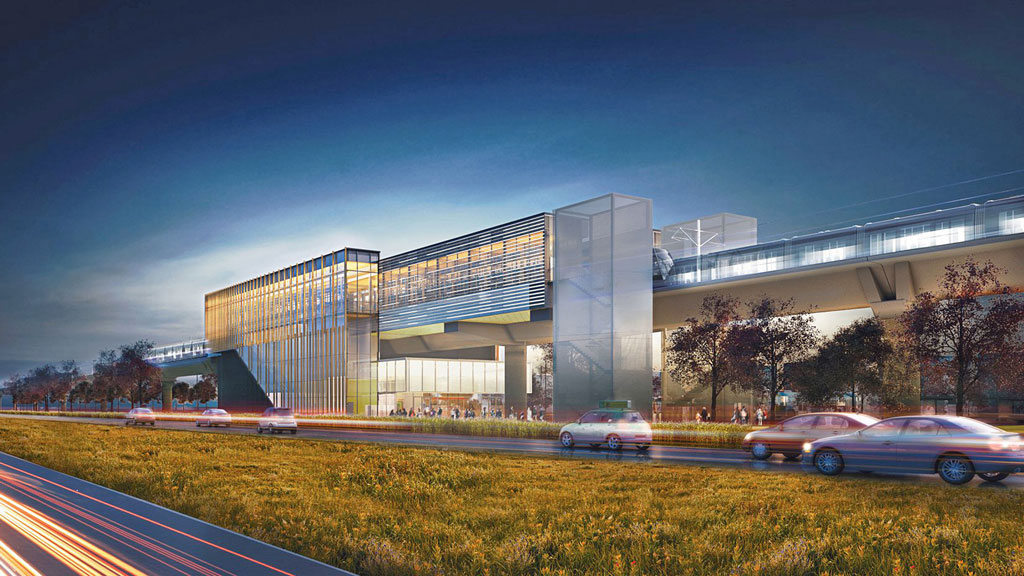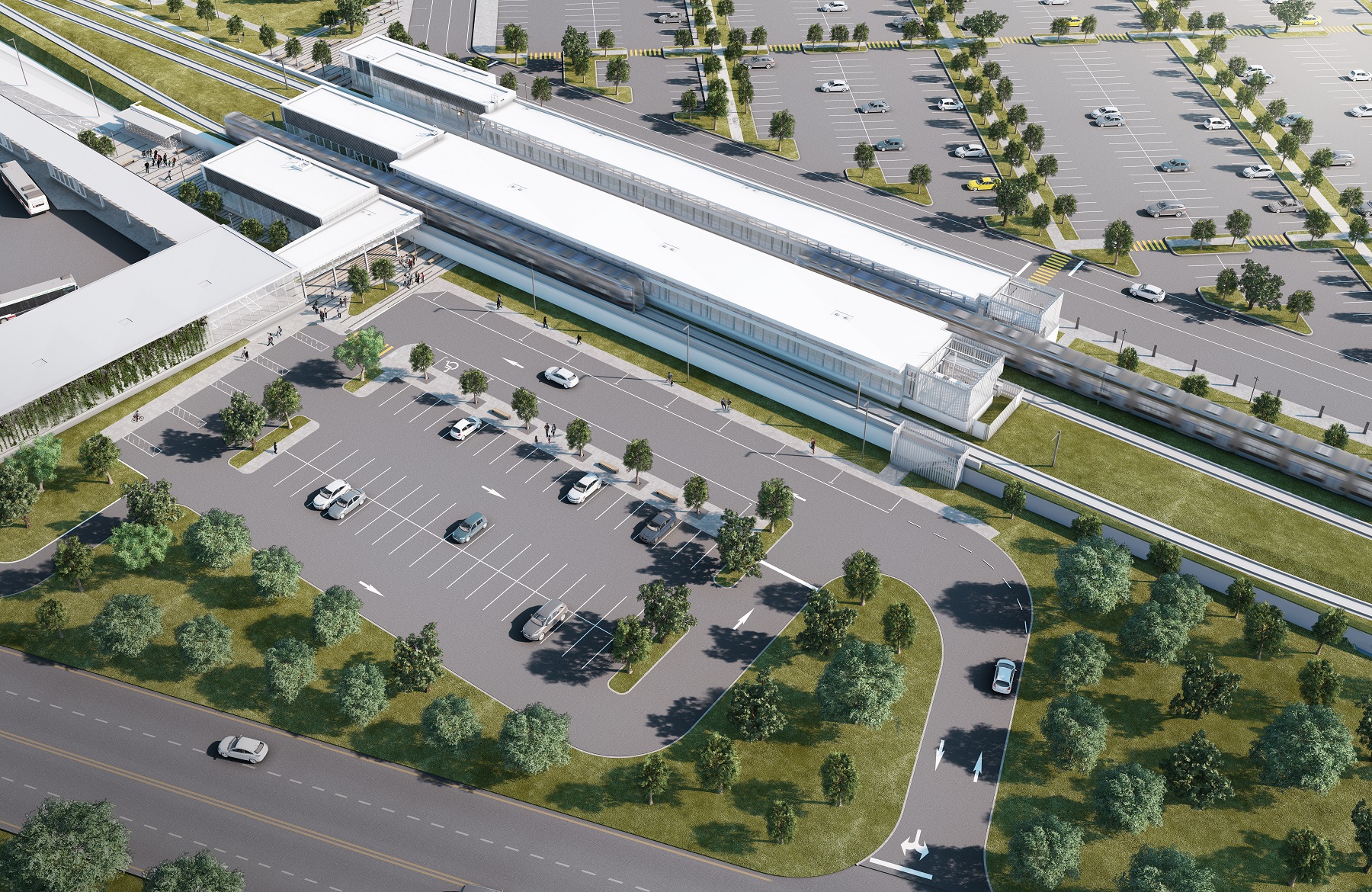tayser
Active Member
The Alstom/Metropolis train platform is looking to be extremely popular these days and the Montréal project and one closer to home, Sydney's new metro, provide some really good / up to date data on how to use these off-the-shelf (well sort of off-the-shelf) systems for local applications. No doubt some of on here are licking your lips, so to speak? 
The first section of the Sydney Metro, surprisingly, has come in $1 billion under budget according to the newly re-elected Liberal state Government of New South Wales - this is the section is 33km long (16km of it brand spanking new tunnel and reusing a tunnel that was built for Sydney Trains last decade). Original budget: $8.3 billion, now $7.3 billion - or $221million/km. One of the local commercial TV news outlets reports it was mainly due to tunneling completed 10 months ahead of schedule.
That figure is for everything - fleet procurement, maintenance and storage depots, operation/maintenance over 15 years etc (the whole project is structured in multiple PPPs - the tunneling contract was for $1.15 billion and included the civil works only for the tunnels and station pits - i.e station fitouts, tunnel fit outs (signaling/electricity etc) was in a separate contract - the $1billion savings must come from the other contracts because I doubt it only cost $150 million to do the civil works for 16km of new tunnels and station pits!).
It'll be interesting to see if that per km figure is maintained as the second phase which runs underground for another 15.5 km (entirely new tunnel - 5 TBMs are in use, a specialised one was procured to do the short hop under Port Jackson) and the rest of the line will be a conversion - much like the Montréal/Deux-Montagnes section of the REM.
Montréal's choice to go down the path of 2-car sets, married in peaks, is interesting too - Sydney Metro will be permanent 6-car sets from the outset with all stations built to eventually cater for 8-car sets - can definitely see how Montréal's getting such a good (in a financial sense) deal from this system - multiple branches and really good frequency. Sydney Metro will have 15TPH peak frequency at the opening of the North West section (which is a matter of weeks away) and when the City & Southwest section comes on board they quoting the same type of service level. Lots of scope for frequency increases over time.
Anyhow - I look at the REM and Sydney Metro project and look at another local proposal here - the Suburban Rail Loop which will eventually connect all but 4 of Melbourne's orbital rail lines - and think the government would be made not go down down the path of such an implementation. There's a lot of complexity in the west but eastern and northern sides (ending up at the Airport), I hope they go down the path of building something similar to this.
Although 2-4 car trains (Montréal) will probably be too small, the trains on the new system will have to be similar to the Sydney system (and also run a bit faster than what Montreal/Sydney will see - our gov wants to see a top in service speed of 130kph).
The first section of the Sydney Metro, surprisingly, has come in $1 billion under budget according to the newly re-elected Liberal state Government of New South Wales - this is the section is 33km long (16km of it brand spanking new tunnel and reusing a tunnel that was built for Sydney Trains last decade). Original budget: $8.3 billion, now $7.3 billion - or $221million/km. One of the local commercial TV news outlets reports it was mainly due to tunneling completed 10 months ahead of schedule.
That figure is for everything - fleet procurement, maintenance and storage depots, operation/maintenance over 15 years etc (the whole project is structured in multiple PPPs - the tunneling contract was for $1.15 billion and included the civil works only for the tunnels and station pits - i.e station fitouts, tunnel fit outs (signaling/electricity etc) was in a separate contract - the $1billion savings must come from the other contracts because I doubt it only cost $150 million to do the civil works for 16km of new tunnels and station pits!).
It'll be interesting to see if that per km figure is maintained as the second phase which runs underground for another 15.5 km (entirely new tunnel - 5 TBMs are in use, a specialised one was procured to do the short hop under Port Jackson) and the rest of the line will be a conversion - much like the Montréal/Deux-Montagnes section of the REM.
Montréal's choice to go down the path of 2-car sets, married in peaks, is interesting too - Sydney Metro will be permanent 6-car sets from the outset with all stations built to eventually cater for 8-car sets - can definitely see how Montréal's getting such a good (in a financial sense) deal from this system - multiple branches and really good frequency. Sydney Metro will have 15TPH peak frequency at the opening of the North West section (which is a matter of weeks away) and when the City & Southwest section comes on board they quoting the same type of service level. Lots of scope for frequency increases over time.
Anyhow - I look at the REM and Sydney Metro project and look at another local proposal here - the Suburban Rail Loop which will eventually connect all but 4 of Melbourne's orbital rail lines - and think the government would be made not go down down the path of such an implementation. There's a lot of complexity in the west but eastern and northern sides (ending up at the Airport), I hope they go down the path of building something similar to this.
Although 2-4 car trains (Montréal) will probably be too small, the trains on the new system will have to be similar to the Sydney system (and also run a bit faster than what Montreal/Sydney will see - our gov wants to see a top in service speed of 130kph).




